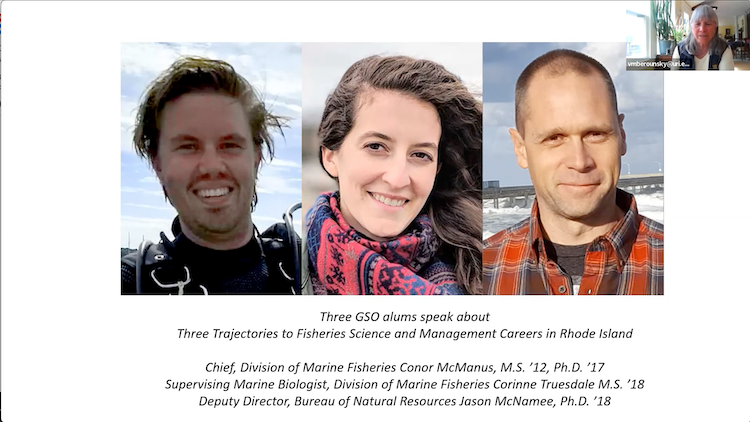
Three GSO alums who are all working in fisheries but in different positions at the R.I. Department of Environmental Management together gave a presentation on Thursday April 28 as part of the Student-Alum Networking Seminar Series. Each gave their perspective, their career path, and advice. Listen to the recording of Supervising Marine Biologist, Division of Marine Fisheries Corinne Truesdale M.S. ’18; Chief, Division of Marine Fisheries Conor McManus, M.S. ’12, Ph.D. ’17 and Deputy Director, Bureau of Natural Resources Jason McNamee, Ph.D. ’18 as they discuss “Three Trajectories to Fisheries Science and Management Careers in Rhode Island.”
